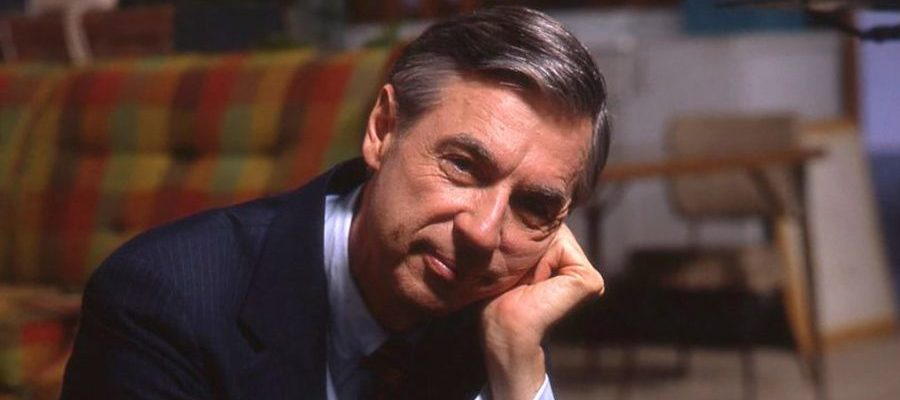Review: The Admiration and Elation Of 'Won't You Be My Neighbor?'

Benjamin Frohman ’19 / Emertainment Monthly Staff Writer
There is one film in 2018, that is unlike any other. Won’t You Be My Neighbor? is a 2018 documentary by Focus Features that focuses on Fred Rogers’ life and television show, Mister Rogers’ Neighborhood. The film is compiled of footage from the show and specials, animation, news clips, and interviews with Mr. Rogers and others who knew him. The tribute is one of heart, that takes a look at the man behind the creation of Mister Rogers’ Neighborhood as well as the societal impacts that came from him. The documentary serves as a keyhole into the imagination, philosophical beliefs, and wonder that was Mr. Rogers.
The television show, Mister Rogers’ Neighborhood dates back to the 1960s, over the span of 31 seasons and featured a whopping 912 episodes. The show itself came from the mind and vision of Fred Rogers. Fred, himself was sickly as a child, and his inspiration for the show came from his boredom at home. He went into television with the idea of creating content for kids, incorporating his imagination and creativity. His technique of using mass media to help children through the difficult modulations of their life was a foreign concept and still is to many. The very basis of this is groundbreaking and powerful.
With the low production value, simple set, and Fred Rogers as the star, the show was a hit among children. His caring demeanor, playful personas, and intrinsic disposition were a way for children to relate and bond with him through their television screens. The neighborhood construct of the show was to show a lifelike community of people. Mr. Rogers created a neighborhood with diverse people and incorporated conflict, social issues, parallels, and everyday occurrences.

The timeliness of the film comes at a pivotal time, when negative emotions are so prevalent and at the forefront of life. Mr. Rogers used television to tear down walls between one another and to instead build up relationships, address negative emotions, and work against cultural/social issues.
Mr. Rogers had to advocate against cutting funding for television. In court, he verbalized the need for television to give a daily expression of care to children. He was successful in doing so and convinced the anti-television politician, Jon Pastore, to keep $20 million in funding for the benefit of young viewers.

Mr. Rogers brought on Francois Clemmons to play a police officer on the show. For the times, a black police officer on television was rare, but Clemmons shined in the role. On the show, Mr. Rogers took a foot bath with Mr. Clemmons to combat the hateful rhetoric of segregated swimming pools. The world needed a symbolic stance against intolerance, and that was presented as a neighborly and humane interaction between two people. The film also includes a touching moment, where Clemmons, a gay man who hid his sexuality for the show, realizes that Mr. Rogers was saying for years that he loves Clemmons just the way he is.

“I don’t think anyone can grow, unless they are accepted exactly as they are,” said Mr. Rogers. This statement, whether it was to children, or the child in each and every one of us, is there for anyone who is willing to listen. The sentiment may seem simple and elementary, but it’s a key way of thinking that has been cast aside by many over the years.
Mister Rogers’ Neighborhood was efficacious in addressing death, assassination, devastation, and heartache. These thematics carry from generation to generation and serve as difficult topics for each person to fathom. The importance of teaching a child to understand the world around them, was a mission for the show. The show was integral in confronting grief, settling turmoil, and bridging the gap between the discussions of adults and children. The way these subjects were addressed was ethereal and pure.

These days the roar of ignorance, bigotry, and hatred is overbearing, but if you listen closely you can hear the warm and welcoming melody of inclusiveness, elation, and love that reverberates through Fred Rogers’ memory. If you want to see the melody come to life, watch Won’t You Be My Neighbor.
To leave off on a quote by Mr. Rogers,
“Love is at the root of everything. All learning, all parenting, all relationships, love or the lack of it. And what we see and hear on the screen, is part of what we become.”
Overall Grade: A+
Watch The Trailer:
[embedyt] https://www.youtube.com/watch?v=FhwktRDG_aQ[/embedyt]